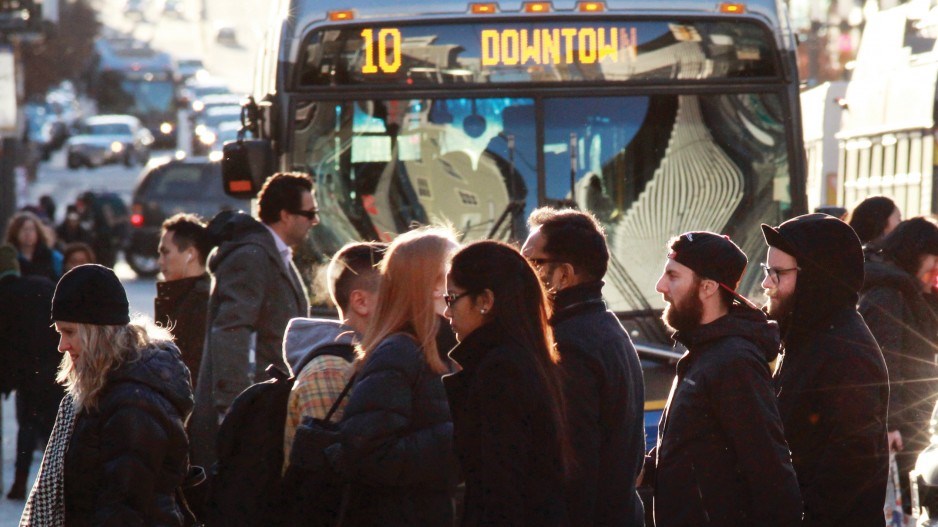What happened: Various industry groups warn of the potential economic consequences of a system-wide transit shutdown
Why it matters: B.C.’s economy has been slowing throughout 2019 and a transit strike could accelerate that, according to one organization
Clogged streets, stranded workers and frustrated customers could hit the economy hard in the event of a system-wide shutdown of bus and SeaBus services this week in Metro Vancouver, according to B.C. business groups.
Members of union Unifor are planning three-day strike action November 27-29 following unsuccessful negotiations with employer Coast Mountain Bus Company.
“We’ve got 5,500 members and the majority of them are small- and medium-sized business owners, and there’s no question how disruptive this is for their businesses,” Bridgitte Anderson, CEO of the Greater Vancouver Board of Trade, told Business in Vancouver.
“Beyond whether customers can get to their business, can their own employees get to and from work?”
She added businesses are still trying to figure out how best to support employees facing limited transportation options but she’s encouraged the two sides are going back to the bargaining table as of November 26.
“What is important is that they stay at the bargaining table. If this goes beyond three days of this potential shutdown, the ramifications could be quite significant and that’s for employees trying to get to work, businesses trying to stay open and of course there’s students trying to get to school,” Anderson said.
Ian Tostenson, CEO of the B.C. Restaurant and Foodservices Association, said his industry has had time to prepare for a potential system-wide shutdown but establishments will immediately feel the impacts if workers can’t get to work.
“That will cause [businesses] to alter hours, reduce service or in the extreme case, close. Our restaurants are already under stress with the labour shortage,” he said in an email to BIV.
Tostenson, who also heads the Ridesharing Now for BC advocacy group, said a potential shutdown underscores the province’s lack of transportation options.
“We have far too much reliance on the bus system. Ride-hailing would allow people to get to SkyTrain at a minimum. The Premier [John Horgan] said by the end of the year. I think it will be limited service at best,” he said, referring to the fact that Expo Line, Millennium Line and Canada Line services are not part of the potential three-day shutdown.
The Business Council of B.C. (BCBC), meanwhile, is concerned about the economic impacts beyond Metro Vancouver.
“B.C is a small, open trading and diverse economy that relies on the mobility of people and goods to operate efficiently. When slowed or stopped, we all suffer,” CEO Greg D’Avignon said in a release.
“Our rural communities rely on Metro Vancouver employers and workers for the services that enable trade, the shipment of household necessities and the export of goods on our roads, through our ports and across borders.”
The BCBC’s latest economic review, released in late October, downgraded the province’s growth forecast from 2% in its Q2 report to 1.8% as of Q3.
“The transit disruption will have the potential to further contribute to the already slowing B.C. economy,” the BCBC said in a release.




